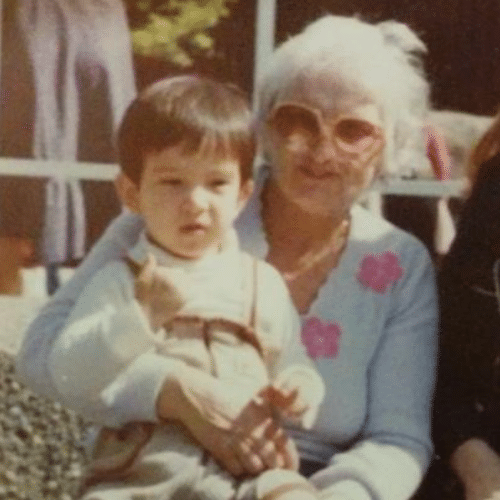Tapestry’s Artistic & General Director Michael Hidetoshi Mori shares a personal story about his grandmother’s experience as a French-speaker; inspired by the themes of identity raised in Our Song D’Hiver
C’est l’hiver! In exploring the French-Canadian for Our Song D’Hiver with opera singer Mireille Asselin, it reminded me of a conversation with my grandmother:
I followed Quebec’s movement to separate when I was younger, and it was easy for me to think of Canada as two majorities, French-speaking in Quebec and English-speaking everywhere else. I think I took the homogeneity of the majority cultures for granted, perhaps ironic as a kid of Japanese and mixed European background parents, or logical as someone whose musical education was driven by being a boy-soprano in a great Anglican music program.
I didn’t know that my grandmother Gladys was born French-Canadian until I was a teen… a surprising discovery as she wasn’t a French-speaker, disappointing my short-lived hope that she could help with French homework!
When I asked her why she didn’t speak French, her answer was simple
Her story turned out to be fascinating, and in retrospect, perhaps indicative of isolated francophones in the prairies in the 1920’s in majority english-speaking towns. Born as the 9th daughter (no sons!) to a farming family, she was already having to fight for her place in the world. When I asked her why she didn’t speak French, her answer was simple, when she turned school-age, she went to school and was regularly made fun of for her accent and use of french words. She hated that feeling and decided then and there to learn English and eliminate any opportunity to be bullied again. Eventually she would switch to answering in English at home with her family when spoken to in French. When as a teenager, she eloped with her protestant english-speaking neighbour and her French-Catholic family refused to speak to her or even look at her in the eyes, she saw no more reason to maintain the French-speaking aspect of herself and by the time she was in her twenties living in Vancouver, she had completely lost the practice and eventually ability to speak her mother tongue.
It’s funny reflecting on how much changes in two generations
It’s funny reflecting on how much changes in two generations. Most parents I know are considering putting their kids into immersion or cultivating another language if it is part of their background. No doubt Toronto in 2021 is vastly different to 1920’s Bigger, Saskatchewan, but I still found this story so tragic. I really love the complexity that comprises each of us and believe that the fear-driven ideas of a homogenous Us and Them in any community, are dangerous falsehoods that hold us collectively back.
Our Song D’Hiver with Mireille and Frédéric and friends is a special opportunity to celebrate artists who have complex connections to their French-speaking sides, whether they are Francophones outside of Quebec, those living in bilingual communities, or relative newcomers in Francophone places.
Above all, Mireille and I found joy in the idea of modelling this a little bit after a house soirée or kitchen concert, celebrating the maritime way that friends and strangers come together to share cheer, music, and stories in the coldest months.
Michael,
Artistic & General Director
